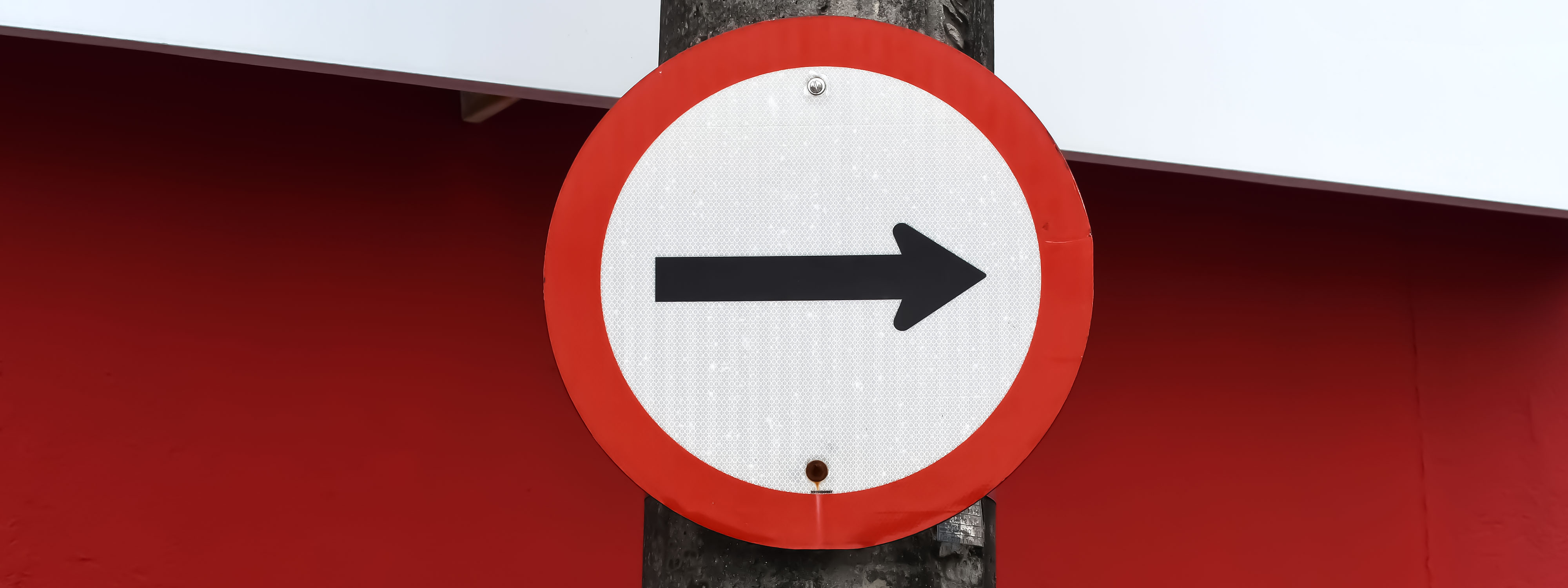Court of Justice of the European Union delivers ruling in Royal Football Club Seraing (C-600/23)

On 1 August 2025, the Court of Justice of the European Union (CJEU) delivered its ruling in the case of Royal Football Club Seraing.1 The CJEU found that also in the context of arbitration before the Court of Arbitration for Sport (CAS), any arbitral award must be subject to effective judicial review by courts within the EU to ensure consistency with EU public policy. In terms of CAS, the CJEU considered that such "compulsory arbitration" may be legitimate given the legal autonomy of these associations and their pursuit of legitimate objectives like uniform settlement of disputes, but recalled that arbitral awards relating to the pursuit of sport as an economic activity within the EU must provide a path for effective judicial review by courts of EU Member States. This review must also ensure consistency with the principles and provisions of EU public policy, including by empowering courts to draw full legal consequences of any inconsistency and provide interim relief. Finally, the Court also clarified that an arbitral seat located outside the EU does not necessarily prevent such review: what matters is the availability of either direct or indirect review within the EU of such arbitral awards. Without that, CAS awards cannot be granted res judicata status or have probative value in Member States.Key TakeawaysCAS arbitral awards must be subject to effective judicial review by courts within the EU to ensure consistency with EU public policy.The dispositive factor is not CAS's location in Switzerland (i.e. outside the EU), but whether direct or indirect judicial review of its awards within the EU is available.The Background: Royal Football Club Seraing and CAS arbitrationIn 2015, Royal Football Club Seraing ("RFC Seraing"), a Belgian second-division football club, entered into agreements with Doyen Sports Investment Ltd ("Doyen"), a Maltese investment firm that offers financial assistance to European football clubs. These agreements principally granted Doyen a share of RFC Seraing's economic rights in relation to four players. Under the first contract, Doyen acquired a 30% share of the economic rights of three players, whilst the second contract provided Doyen with 25% of the economic rights over a fourth player. Together, these contracts form the contracts at issue in the main proceedings.2After launching an investigation into the contracts at issue, the FIFA Disciplinary Committee found that RFC Seraing violated Articles 18bis and 18ter of the Regulations on the Status and Transfer of Players (RSTP) by entering into the contracts. It thus banned the club from registering players for four transfer periods and imposed a fine of CHF 150,000. RFC Seraing subsequently appealed to the FIFA Appeal Committee, which dismissed their appeal.The club then turned to the Court of Arbitration for Sport (CAS), which upheld the fine but reduced the prohibition on registering players from four transfer periods down to three. RFC Seraing then brought an action before the Swiss Tribunal Fédéral (the Swiss Supreme Court), challenging the CAS award. In 2018, the Tribunal Fédéral, dismissed the action.3Concurrently, RFC Seraing also brought proceedings before the Belgian courts. In the first instance, the tribunal de commerce francophone de Bruxelles (Brussels Commercial Court), found that it lacked jurisdiction to examine the claims. The club appealed the commercial court's findings, leading the higher court—the court d'appel de Bruxelles (Court of Appeal, Brussels)—to dismiss all of the claims brought by RFC Seraing.4Subsequently, the club appealed a point of law to the Court de cassation (Court of Cassation, Belgium), which then referred two questions of interpretation of EU law to the Court of Justice of the European Union (CJEU). These two questions related to the value of CAS arbitral awards under EU law and the extent to which they have the force of res judicata such that their conclusions cannot be reviewed anew by a domestic court in the EU. In particular, the question concerned whether an arbitral award the conformity of which with EU law has been reviewed by a court of a third country that is not permitted to refer a question to the Court of Justice of the European Union for a preliminary ruling, can have the force of res judicata in the EU.The CJEU's Judgment on the Role and Review of CAS AwardsEffective judicial protection for individuals in the event of recourse to arbitration including CAS arbitrationAt the outset, the Court started with a restatement of the basic principles regarding effective judicial protection for individuals within the European Union, including in the event of recourse to arbitration. The Court pointed out that, irrespective of the rules which may apply to the arbitration body, the awards made by that body must be amenable to judicial review such as to guarantee the effective judicial protection to which the individuals concerned are entitled, pursuant to Article 47 of the Charter, and which the Member States are required to ensure in the fields covered by EU law. According to the Court, it must, in any event, remain possible for the individuals concerned by such awards to obtain a review, by a court or tribunal meeting all the requirements arising from Article 267 TFEU, as to whether such awards are consistent with the principles and provisions which form part of EU public policy and which are relevant to the dispute concerned.5 Following this general overview of principles, the Court moved to discuss their specific application to arbitration before the Court of Arbitration (CAS). It noted that, in light of the statutes and prerogatives of sports associations like FIFA, "recourse to such arbitration mechanisms must be regarded as being unilaterally imposed by such associations on those individuals." In support of this finding, the Court cited to past cases such as International Skating Union v. Commission and Mutu and Pechstein v. Switzerland. The Court also observed that, even though these arbitration mechanisms result from an agreement with the respective individuals concerned, "the conclusion of that agreement and the insertion in it of a clause providing for recourse to arbitration are, in reality, imposed beforehand by rules that are adopted by the association concerned."6Relying on the Advocate General's opinion, the Court also described the mandatory nature of these arbitration mechanisms as being:"[C]losely linked to the fact that they are intended to apply to disputes between, on the one hand, a sports association with sui generis and particularly extensive regulatory and oversight powers as well as the power to impose sanctions, and, on the other hand, a general and indeterminate group of legal or natural persons who are subject to the exercise of those powers in the pursuit of their professional activity."7However, the Court did acknowledge that recourse to arbitration "may be warranted in principle," particularly given the "legal autonomy" enjoyed by international sports associations and the pursuit of "legitimate objectives" such as ensuring "the uniform handling of disputes relating to the sporting discipline that is within the purview of their jurisdiction or enabling the consistent interpretation and application of the rules applicable to that discipline."8Hence, the Court acknowledged that sports arbitration mechanisms are permissible and pursue legitimate objectives. However, it proceeded with caution as to their impact on EU law-based reviews of their decisions. As the next section explains, the Court goes on to clarify that any judicial review of arbitral awards must meet certain requirements, with the goal of ensuring that national courts within the EU can "guarantee individuals the effective judicial protection" to which they are entitled.CAS decisions that concern EU public policyRegarding CAS decisions that implicate EU public policy, the Court stressed that effective judicial review is essential. Stating that "where those disputes relate to the pursuit of sport as an economic activity within the territory of the European Union, the possibility for individuals concerned to obtain judicial review as to whether those disputes are consistent with […] EU public policy is particularly important."9 The Court confirmed that EU competition law as well as the freedom of movement for workers, the freedom to provide services and the free movement of capital form part of EU public policy.10In particular, the Court made it clear that national courts within the EU must be empowered to review how principles and provisions forming part of EU public policy are interpreted and applied in these arbitral awards, such as the CAS award in the present case. The Court explained that:"[T]he courts or tribunals of the Member States that are called upon to carry out such a review must, where such an award involves, as in the present case, an interpretation or application of the principles or provisions which form part of EU public policy and which confer rights or freedoms on individuals, be able to review the interpretation of those principles or provisions, the legal consequences attached to that interpretation as regards their application to the case at hand, and the legal classification which was given, in the light of that interpretation, to the facts as established and assessed by the arbitration body."11Moreover, the Court held that national courts cannot simply be empowered to determine whether an award is inconsistent with EU public policy, but they also must be able to draw "all the appropriate legal conclusions where such an inconsistency is found to exist." Without this, the Court explained, judicial review "would not be effective," because it would allow for the inconsistencies from the award to persist.12Accordingly, individuals must have access to remedies that include not only a finding of infringement and award of damages, but also the ability to end the conduct causing the damage and to seek interim measures—such as requesting a preliminary ruling from the CJEU.Finally, the Court concluded that without this effective judicial review complete with the aforementioned remedies, CAS awards cannot be given res judicata or probative value. As the Court explained: "[i]t is the very conferral of such an authority and, consequently, such a value on the arbitral award that […] is in breach of the requirement of effective judicial protection."13The significance of CAS having a seat outside the EUIn interpreting Article 19(1) TEU, the Court observed that the provision "does not necessarily imply that there must be a direct legal remedy within the territory of the European Union […] the object of which is to enable the individuals concerned to challenge such awards."14 Whilst not necessary, the Court explained that arbitral awards—such as those issued by CAS—can still be subject to direct legal remedy within the EU if the association provides for it: "[i]t is, however, possible for the sport association concerned to put in place an arbitration mechanism that is subject, in view of the association's headquarters, to such direct legal remedy within the European Union."15 This would be the case if the seat of the arbitral tribunal is in the EU for example.The Court then clarified that if an arbitral award concerns the pursuit of sport as an economic activity in the EU, and no such direct legal remedy before a court of a Member State exists enabling a challenge of the award, there must still be a route for indirect effective judicial review in a Member State:"[A] possibility must exist […] for the individuals concerned to obtain indirectly, at their request or of the court's or tribunal's own motion, from any court or tribunal of a Member State that is liable to examine such an award in any manner whatsoever, effective judicial review as to whether that award is consistent with the principles and provisions which form part of EU public policy […]. In the absence of such an indirect review or if that review is not effective […] there would be no legal remedy making it possible to ensure effective judicial protection for the individuals concerned, with the result that the Member State concerned is required to put in place such a remedy."16Hence, the Court's findings appear to suggest that the dispositive factor is not the physical presence of the arbitral body's seat, but that there is always an avenue or path for judicial review within the EU—whether directly or indirectly—over the arbitral award itself.Whether the Court's findings are limited to EU public policyThe Court's findings appear to specifically concern ensuring the consistency of arbitral awards with the principles and provisions of EU public policy, rather than any EU-law related rule. On several occasions, the Court clarifies that judicial review is essential to ensure that awards are "consistent with the principles and provisions which form part of EU public policy," and they also specify that the legal autonomy enjoyed by sporting associations cannot justify the exercise of their powers in a way that limits the "rights and freedoms conferred on [individuals] by EU law which form part of public policy."17When addressing the question of legal remedy, the Court states that indirect effective judicial review is required to determine "whether the award is consistent with the principles and provisions which form part of EU public policy," and that this review must address the "principles or provisions which form part of EU public policy and which confer rights or freedoms on individuals."18 In various other sections of the ruling, the Court similarly references the ability for national courts within the EU to review the award's consistency with EU public policy.Hence, the judicial review obligations established by the Court in this case seem to apply only in relation to the "principles and provisions which form part of EU public policy" – not to all EU-law rules at large. Conversely, not all EU law qualifies as "public policy".Analysis and OutlookThe Court's decision in this case clarified that CAS awards that touch upon matters of EU public policy such as EU competition law and the free movement rules, will always be subject to review by an EU court on public policy grounds and potentially a reference to the CJEU, irrespective of the fact that CAS has its seat outside the EU, in Switzerland.However, the Court did not go as far as the Advocate General which had questioned the validity of CAS sports arbitration as such and had not limited the need for review on public policy grounds, but rather had advocated a full merits review of CAS awards. In so doing, the Court refrained from seriously undermining CAS. It did acknowledge the compulsory nature of CAS arbitration clauses imposed by a number of sports associations on individuals for settling their disputes with the association, but did not consider that this necessarily undermined the legitimacy of the CAS arbitration. This being said, the Court made it clear that if the dispute involved matters of EU public policy such as competition law, or the four freedoms, a challenge can be brought before a domestic court in the EU and the CAS award should be reviewed on public policy grounds. Even after a CAS award has rejected any complaints, a case may still be brought before a domestic court which essentially can ignore the CAS award and, where relevant, the Swiss Tribunal Federal's approval of such an award, when matters of EU public policy are at stake.This means that any challenges to rules and decisions of sports associations that are considered to be an abuse of their dominant position for example or a restriction on competition, such as challenges to authorisation rules for alternative competitions, but also other restrictive regulations that affect sport as an economic activity in the EU, such as more recently transfer or agent regulations, must be reviewed on public policy grounds by ordinary courts in the EU.The first reaction of CAS to the Court's ruling was positive, focusing on the finding in favour of CAS's legitimacy as the forum for resolving sports-related disputes and highlighting that the large majority of disputes before CAS involves contractual and disciplinary matters that are unaffected by this ruling.19In short, the Court appears to have opted for an approach that says whether arbitration is seated within the EU or outside it, effective public policy control must still be exercised by national courts. This approach shifts the focus away from where the seat of arbitration is located and onto the effectiveness of judicial control and oversight under EU law, also in sports related matters. At the same time, the Court's principled approach is of broader importance for arbitration, including commercial arbitration. It reaffirms the duty of national courts in the EU to review arbitral awards on public policy grounds, a review that has to be "effective", and avoids making the "unilateral imposition" of the agreement to arbitrate as the critical element, which could have opened Pandora's Box and encouraged losing parties to argue that the arbitration was effectively "imposed" in their case.Abdulameir Yahia ( White & Case, Legal Intern, Geneva) co-authored this publication.1 CJEU, Case of Royal Football Club Seraing, Case C-600/23, CJEUJudgment, 1 August 2025, available here (Royal Football Club Seraing, CJEU, Judgment).2 Royal Football Club Seraing, CJEU, Judgment, paras. 21-24.3 Royal Football Club Seraing, CJEU, Judgment, paras. 25-42.4 Royal Football Club Seraing, CJEU, Judgment, para. 48.5 Royal Football Club Seraing, CJEU, Judgment, para. 85.6 Royal Football Club Seraing, CJEU, Judgment, para. 92.7 Royal Football Club Seraing, CJEU, Judgment, para. 93.8 Royal Football Club Seraing, CJEU, Judgment, para. 94.9 Royal Football Club Seraing, CJEU, Judgment, para. 91.10 Royal Football Club Seraing, CJEU, Judgment, paras. 88-89.11 Royal Football Club Seraing, CJEU, Judgment, para. 101.12 Royal Football Club Seraing, CJEU, Judgment, para. 103.13 Royal Football Club Seraing, CJEU, Judgment, para. 122.14 Royal Football Club Seraing, CJEU, Judgment, para. 99.15 Ibid.16 Royal Football Club Seraing, CJEU, Judgment, para. 100.17 Royal Football Club Seraing, CJEU, Judgment, paras. 91, 95.18 Royal Football Club Seraing, CJEU, Judgment, para. 101.19 See, https://www.tas-cas.org/fileadmin/user_upload/ICAS_statement_CJEU_Seraing_ENG.pdfWhite & Case means the international legal practice comprising White & Case LLP, a New York State registered limited liability partnership, White & Case LLP, a limited liability partnership incorporated under English law and all other affiliated partnerships, companies and entities.This article is prepared for the general information of interested persons. It is not, and does not attempt to be, comprehensive in nature. Due to the general nature of its content, it should not be regarded as legal advice.









